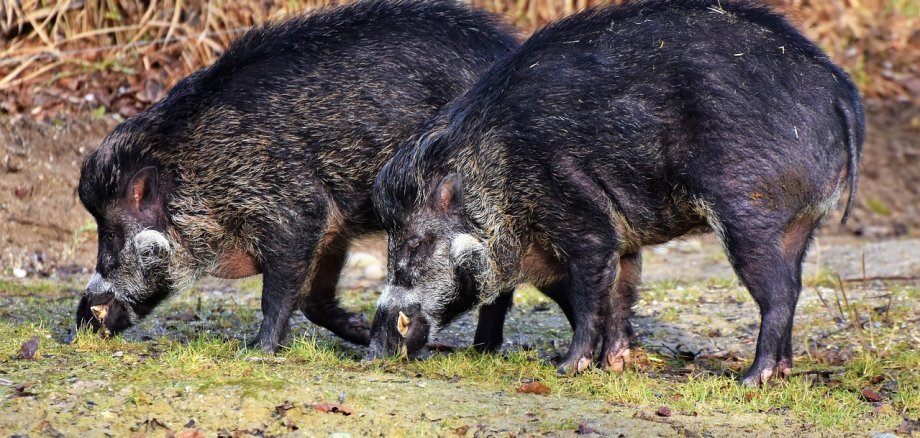Swine fever: district takes further precautionary measures
Following the discovery of an outbreak of African swine feverin the nearby district of Olpe, the district of Waldeck-Frankenberg is once again stepping up safety measures in the region - and calling for particular vigilance to prevent the further spread of the disease, which is harmless to humans but usually fatal to animals.
Since last week, several dead wild boars have tested positive for African swine fever in the North Rhine-Westphalian municipality of Kirchhundem. "The locations where the pigs were found are only a few kilometres away from the southern municipalities of the district of Waldeck-Frankenberg," says Karl-Friedrich Frese, First District Councillor of the district. "We will now do everything we can to prevent any further spread."
Use of search dogs
Search dogs are currently being used by the state of Hesse to search an area around ten kilometres wide towards the North Rhine-Westphalian border for dead wild boar as a precautionary measure - including in Waldeck-Frankenberg. The aim is to track down and dispose of any infected carcasses so that infection of healthy animals - especially domestic pigs - can be prevented.
Furthermore, the district is once again calling on people to observe the safety measures - whether thorough hygiene and cleaning, avoiding contact between domestic and wild pigs, controlled feeding, close-meshed sampling, hunting or careful handling of food. "We are reliant on the support of livestock farmers, hunters and the general public," emphasises Karl-Friedrich Frese.
Comply with biosecurity and hygienemeasures
As the virus can be transmitted through contact between infected and healthy animals, contaminated food, animal products, tools or clothing, livestock farmers are once again urged to comply with biosecurity and hygiene measures. In addition to fences and protective devices to prevent contact with wild boar, these also include the correct use of protective clothing. Cleaning and disinfection are also of particular importance. Furthermore, it is again pointed out that all pig holdings - including hobby holdings of minipigs, for example - must be registered with the district authorities.
Controlled hunting and intensive sampling
The district is also in close dialogue with the hunting community. As the wild boar population continues to rise, intensified hunting of wild boar is unavoidable under the current legal requirements. "In this context, we would like to draw attention once again to the importance of intensive sampling of the animals," says Dr Anke Zwolinski, Head of the Food Monitoring, Animal Welfare and Veterinary Service at the district authority. "In the case of fallen game, accidental game and sick wild boar, a swab sample should always be taken and we should be informed immediately where the animal was found." Private individuals who discover carcasses should also report the discovery to the responsible authorised hunter or to the district on 05631 954 1753.
Always dispose of leftovers properly
However, contamination can also occur through carelessly discarded food - especially raw sausage - or other discarded meat scraps, which can be ingested by wild boar. This must be prevented at all costs. Food waste should therefore always be disposed of in closed waste containers. Unfortunately, this is not always the case, especially at petrol stations and service areas. It is therefore important to be particularly careful here.
Clean and disinfect tourist equipment
As the virus can also be carried from one area to the next by guests and tourists, people on holiday here are also urged to take precautions: Anyone travelling in the countryside - whether on foot or on a bike - should thoroughly clean and disinfect their equipment, clothing, footwear, walking poles or bike and, if possible, keep away from domestic and wild pigs as well as carcasses and report them immediately. In addition, animals should not be fed and no leftover food should be left in the wild and disposed of in closed containers.
Keywords:
African swine fever Animal disease control Veterinary service
